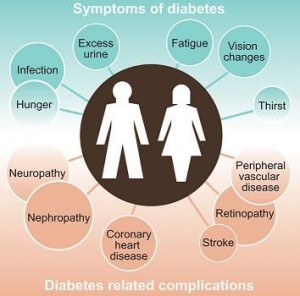
- Biotin is associated with glucose metabolism and is useful for type 1 and type 2 diabetes. Take 9 to 16 mg daily.
- An antioxidant formula supplies additional antioxidants, which usually are needed in higher amounts in people with diabetes. Take as directed on the container.
- Vitamin C reduces the complications of diabetes. Take 1,000 mg two to three times a day.
- Vitamin B12 is effective for the symptoms of diabetic neuropathy. Take 1,000 mcg sublingually or by injection from your doctor (1 cc twice weekly).
- B-complex vitamins take part in blood sugar metabolic process and help treat diabetic symptoms such as neuropathy. Take a 50 mg B-complex daily.
- Magnesium is associated with insulin production and utilization. Take a daily total of 500 to 750 mg. Reduce dosage if loose stools occur.
- CoQ10 is commonly low in people with diabetes. One study found that it has a blood-sugar-lowering effect. CoQ10 prevents LDL cholesterol oxidation, that is more frequent in people with diabetes.
- Vitamin E enhances glucose regulation and prevents cholesterol oxidation. Take 800 to 1,200 IU daily of a formula containing tocotrienols and tocopherols.
- Thymus (Thymus vulgaris) extract balances the immunity mechanism, which is essential for type 1 diabetes. Take 500 mg two times a day on an empty stomach or as directed on the container.
- Psyllium has been proven to reduce blood-sugar levels. It’s a good source of fiber. Take up to 5 grams every day.
- Pancreas extract facilitates pancreatic function. Take 500 mg two times a day on an empty stomach or as directed on the container.

